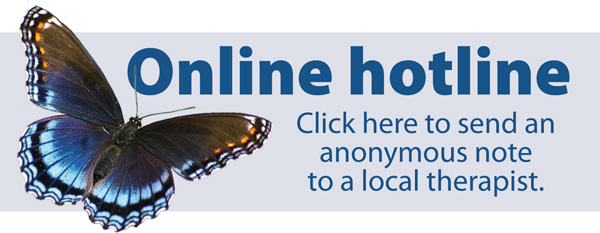Relationship abuse and emotional abuse
I have a neighbor who I talk to frequently and lately she is confiding in me about the issues in her marriage. What I’m hearing sounds like abuse. What guidance do you give to women so they’ll know what constitutes “emotional abuse,” “verbal abuse,” “relationship abuse,” and “physical abuse”? I’m realizing that what I might find to be “abuse,” another person might think is just a bad argument. I’m not sure what the appropriate response is to emotional and verbal abuse, although I’m certain what any woman should do in the face of physical abuse. Any advice on these definitions and responses?
Response by Kim Bond, LMFT, of Ozark Guidance
These are really important questions so thank you for asking them. It’s important to remember that relationship abuse is not always physical, yet can be equally devastating and even life threatening.
Verbal abuse can be thought of as chronic verbal aggression and usually includes things like yelling or swearing, name calling, insults, threats/intimidation and humiliation. As you can probably see, verbal abuse is closely tied to emotional abuse, sometimes called psychological abuse.
Emotional abuse can also include isolation (cutting someone off from outside influences and support systems), withholding affection, withholding finances, ignoring the person and shaming. And you’re right – it’s sometimes hard to tell if a couple fights or squabbles as part of their “routine” or if there is abuse going on. A few signs of an abusive relationship are:
- The “abusive” dialogue is one direction, meaning that one person is always the aggressor and the other is always the recipient
- The behavior results in lower self-esteem for the recipient
- There is a change in behavior such as the recipient is becoming more withdrawn, anxious, depressed or even suicidal
For your neighbor, it’s a good sign that she’s confiding in you. Actively listening, being sympathetic and gaining her trust is very important; it’s a way of creating a “safe haven.” Your friend needs someone non-judgmental to hear her story. You can gently address your concerns with her, maybe even telling her you’ve been reading a little bit about emotional abuse while assuring her that you’re on her side.
Don’t be surprised if your neighbor backs away from this at first; that’s a typical reaction when the topic of relationship abuse is presented. After that, just continue to be as supportive and non-judgmental as you can whenever she brings up the topic again with the idea of creating a safe place for her to talk.
If her behavior changes drastically, such as withdrawing even more, canceling plans with friends, stops doing her daily routine or starts crying easily or often, it may be time to reach out to a professional for assistance in how to help your friend. These resources are available 24/7:
- Northwest Arkansas Women’s Shelter at 1-800-775-9011;
- Peace at Home Family Shelter at 1-877-442-9811
- The National Domestic Violence Hotline is available 24/7 at 1-800-799-7233
Remember: emotional abuse can be life threatening and should not be ignored. If you or others are in need of emotional or mental health support, the staff at Ozark Guidance would also be happy to help. You can reach Ozark Guidance at 479-750-2020. Good luck to you both.
Therapists at Ozark Guidance would be happy to answer your questions and read what’s on your mind. Click here to read more questions and answers in the On Your Mind category. Click the butterfly icon below to fill out an anonymous submission form with your question or concern. The form contains NO identifying information and is designed to give local women an online place to share concerns with a person qualified to offer feedback.
 Disclaimer: This RESPONSE does not provide medical advice It is intended for informational purposes only. It is not a substitute for professional medical advice, diagnosis or treatment. Never ignore professional medical advice in seeking treatment because of something you have read on nwaMotherlode or Ozark Guidance websites.
Disclaimer: This RESPONSE does not provide medical advice It is intended for informational purposes only. It is not a substitute for professional medical advice, diagnosis or treatment. Never ignore professional medical advice in seeking treatment because of something you have read on nwaMotherlode or Ozark Guidance websites.

